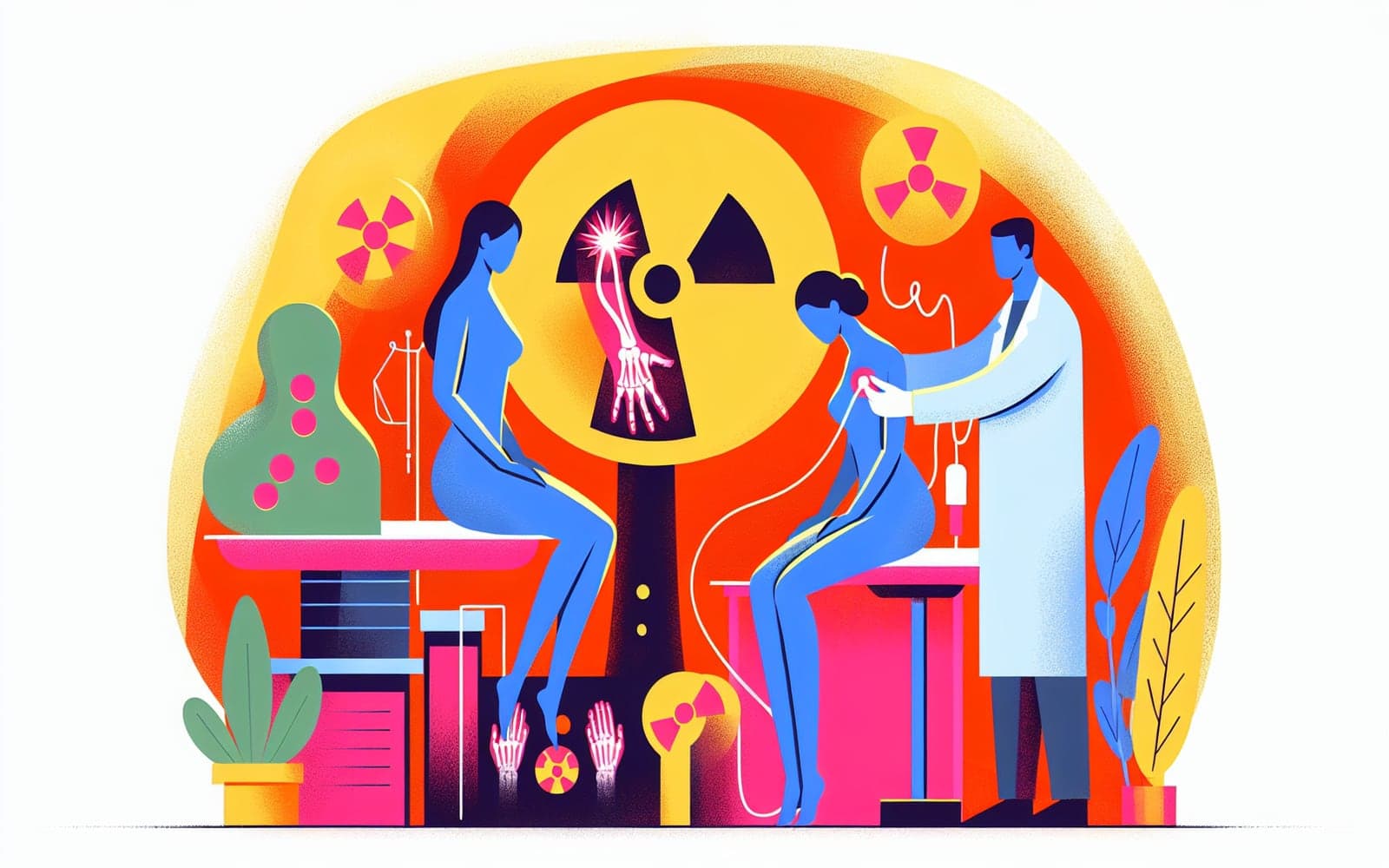Radioactive Iodine Treatment for Graves' Disease: What to Expect
Published: Mar 05, 2024
Radioactive iodine therapy is a common treatment for Graves' disease. It's a simple procedure that can permanently resolve hyperthyroidism, but what exactly does it involve?
Contents
How Radioactive Iodine Works
Radioactive iodine (RAI) treatment involves swallowing a single dose of radioactive iodine-131. The thyroid gland absorbs this iodine, and the radiation destroys the overactive thyroid cells. It's like a targeted attack on the problem area, leaving other parts of your body unaffected.
The Treatment Process
The procedure itself is quick and painless - you simply swallow a pill or liquid. However, you'll need to follow some precautions afterward to avoid exposing others to radiation. These usually last a few days to a week. You'll have follow-up appointments to monitor your thyroid function over the next few months.

Expected Outcomes and Side Effects
Most patients become hypothyroid within 6-18 weeks after treatment, requiring lifelong thyroid hormone replacement. This is actually the goal of treatment, as it's easier to supplement thyroid hormone than to control an overactive gland. Side effects are generally mild, but RAI may worsen eye problems in some patients with Graves' ophthalmopathy.
Frequently Asked Questions
Yes, it's been used safely for over 60 years.
Briefly, which is why precautions are necessary.
No, it's contraindicated during pregnancy and breastfeeding.
Key Takeaways
Radioactive iodine offers a simple, effective way to permanently treat Graves' disease, but it's not right for everyone.
Curious if radioactive iodine treatment could be a good option for you? Discuss your case with Doctronic to learn more.Related Articles
References
Ross DS, et al. 2016 American Thyroid Association Guidelines for Diagnosis and Management of Hyperthyroidism and Other Causes of Thyrotoxicosis. Thyroid 2016; 26:1343.
Franklyn JA. The management of hyperthyroidism. N Engl J Med 1994; 330:1731.
Always discuss health information with your healthcare provider.

